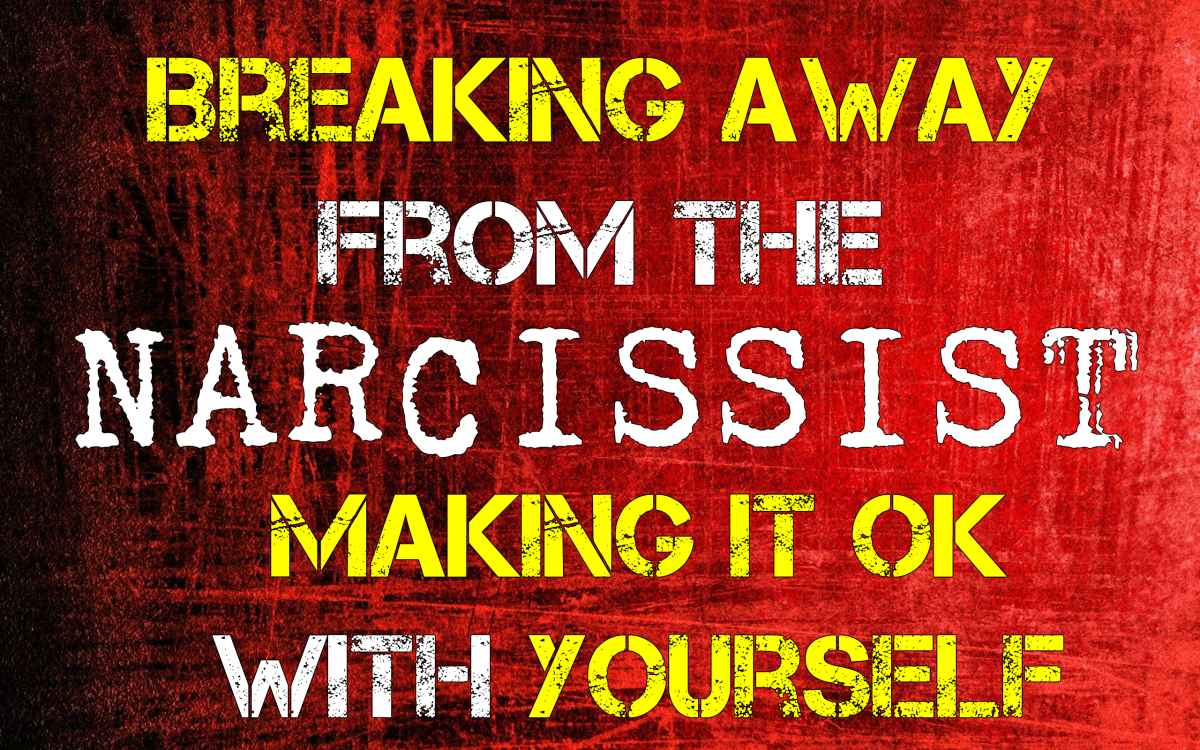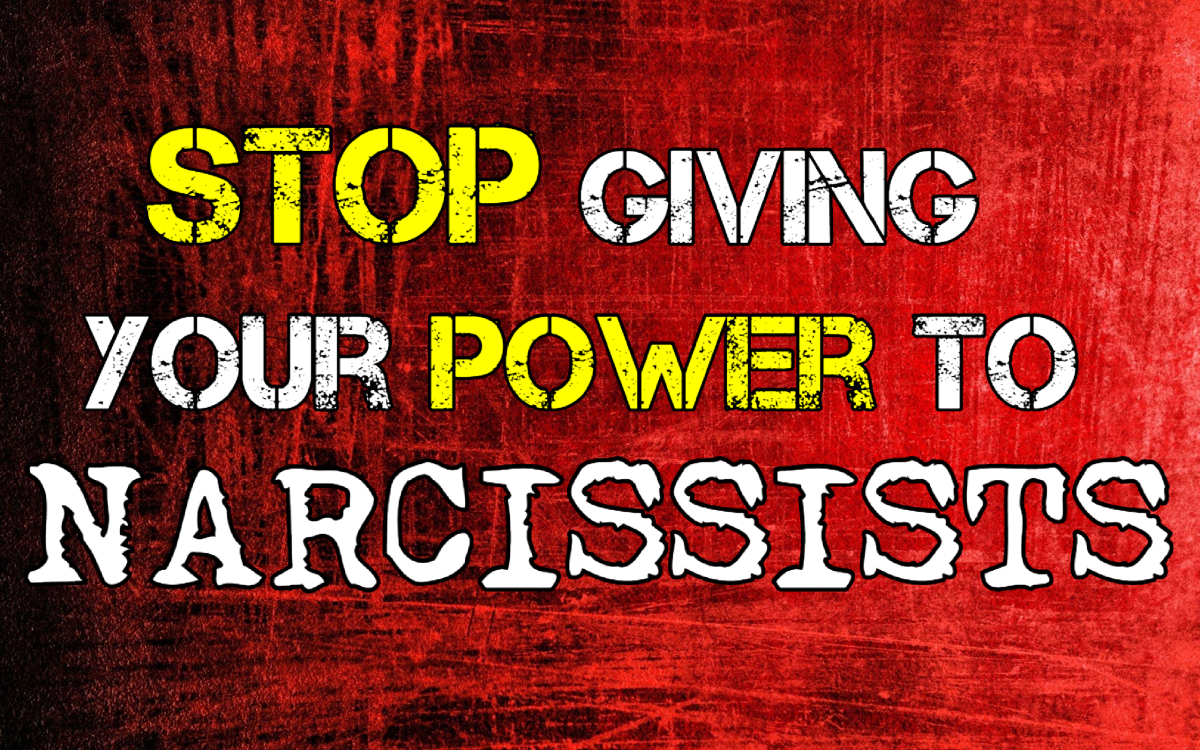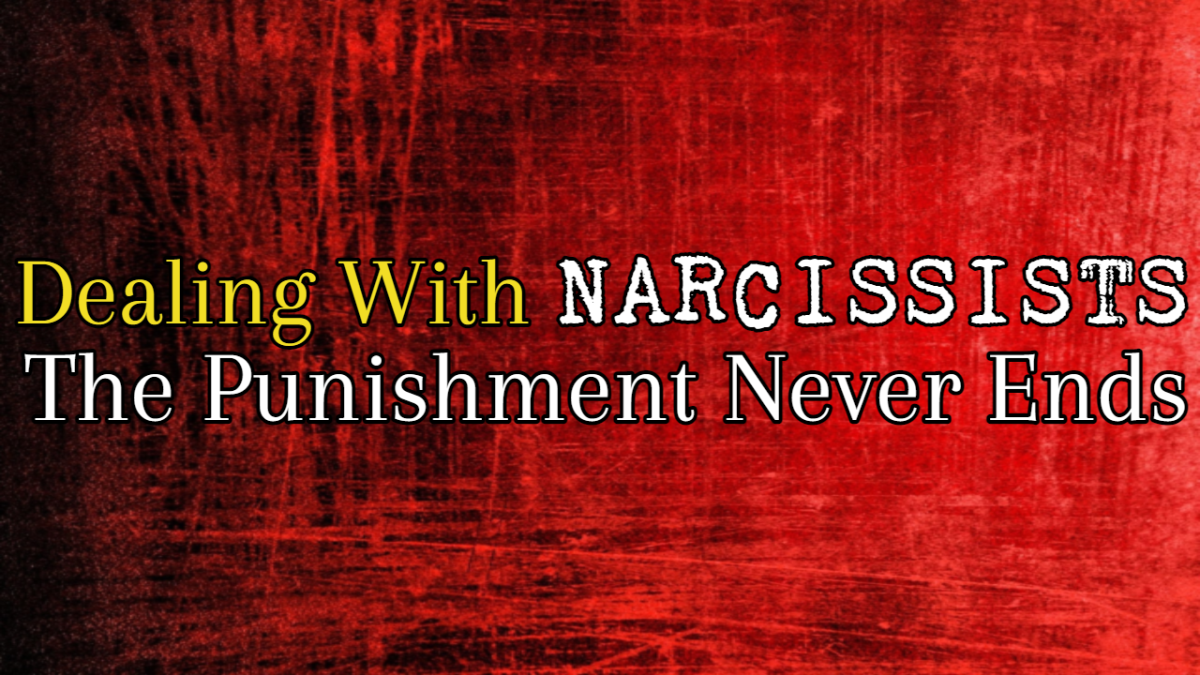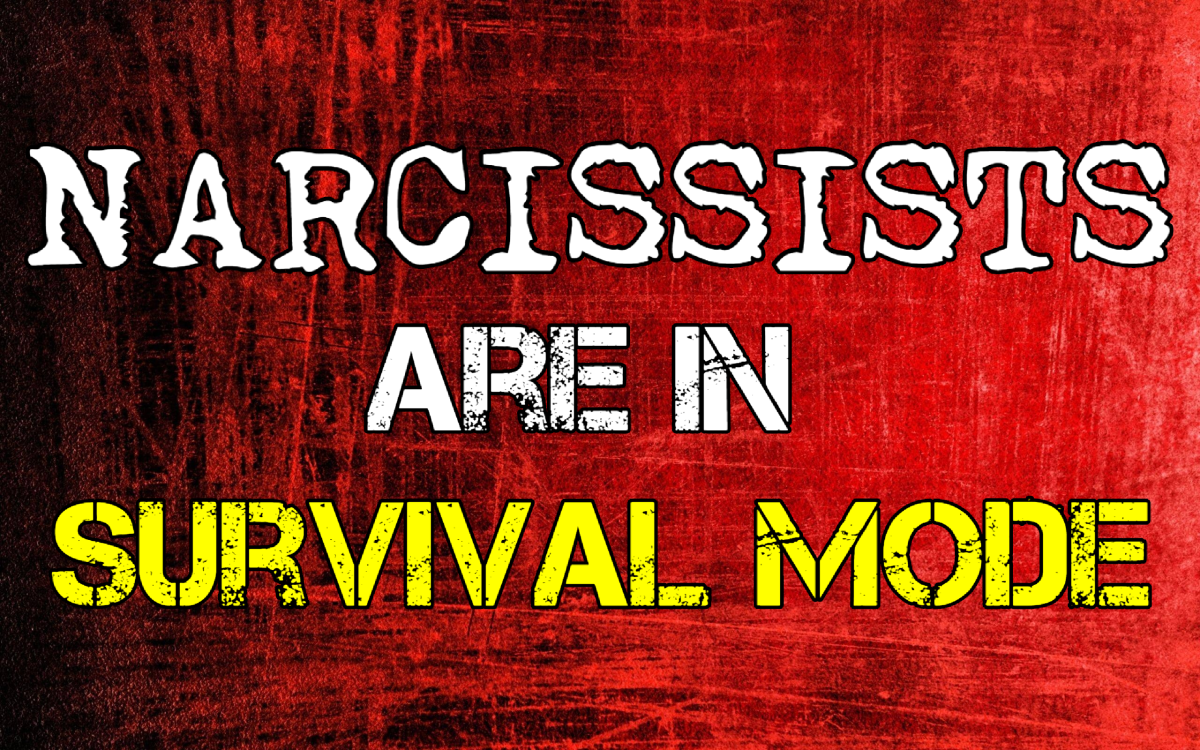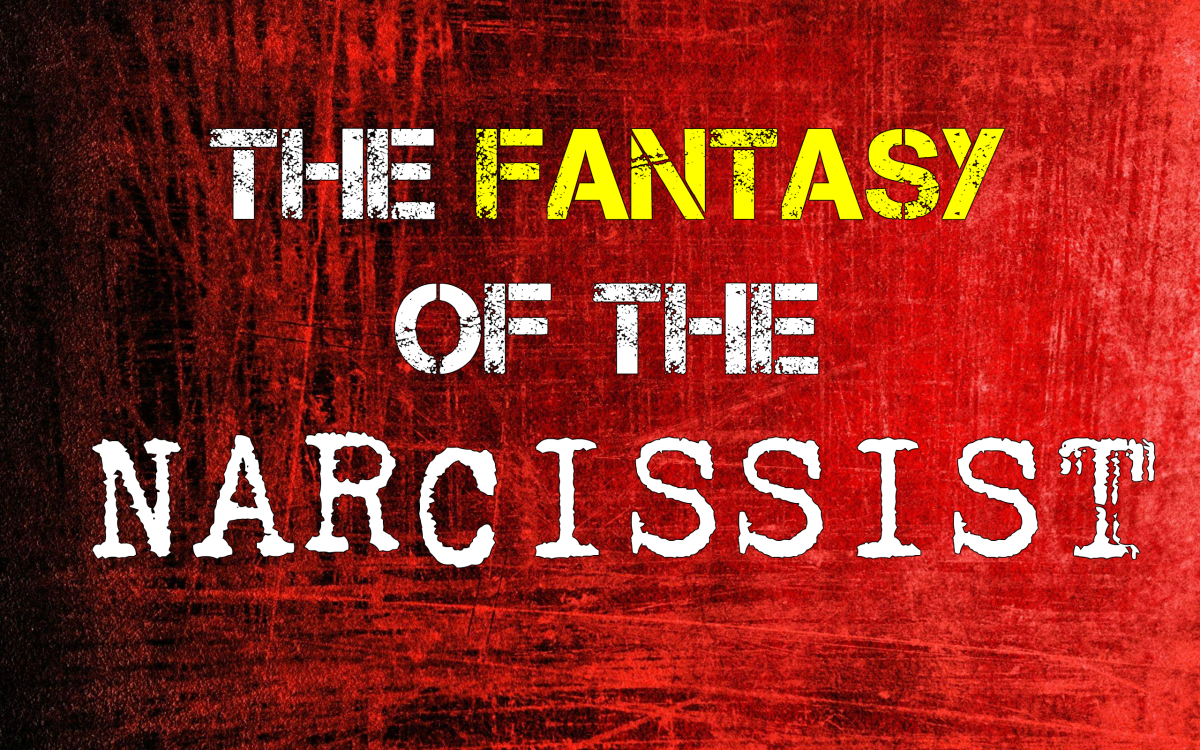- HubPages»
- Health»
- Mental Health»
- Personality Disorders
The Narcissistic Guilt Trap

When people are asked why they cannot enforce their boundaries with the narcissist in their life or why they cannot leave the situation and go no contact, more than any other reason - more than love, more than fear, more than anything - people say they feel guilty. Their own feelings are working against their best interests and choosing the narcissist's well-being over their own. This is, of course, exactly what the narcissist wants. It validates and reinforces their belief that they are the only important person in the situation. And that's exactly what they are looking for: someone who will put the narcissist's needs first, regardless of how much they themselves are suffering.
Once pathologically narcissistic people see that they can use something as a weapon against somebody to get what they want, they will use it every time they need it. The one bright spot in all of this is that, if they are using your own feelings against you, you can take control over that. In other words, the narcissist isn't making you feel guilty. Nobody can make another person feel anything. You have to agree. You're feeing guilty on your own, either because you believe what they are saying or because you're afraid it's true. That's of course not logical, but feelings often are not logical. Feelings are often not reasonable, and they are often not based in reality. That's why narcissists are so unreasonable and can seem so delusional. Feelings rule their reality and feelings are illogical.
The reason that people feel guilty is usually because they've taken responsibility for the narcissist's feelings and well-being. The narcissist has of course been a very willing participant in this; they definitely want other people to take responsibility for their needs because they cannot fulfill them on their own, and they work very hard to make this happen. People who have not been conditioned to believe this is their job will walk away from the narcissist, realizing that what the narcissist is demanding is ridiculous, childish and unfair. Those who have been taught that this is what they need to do in order to be loved will often stick around and do whatever they can to oblige. They feel bad for the narcissist. They want to help the narcissist. They are willing to put up with nonstop abuse just to save this other person's feelings.
Some seem to feel that this is a sign of strength, or a testament to how much they care. It is not. It is a testament to how little they care - about themselves. It does not prove anything other than that they don't believe they deserve any better, and contrary to what many hope, it does not show the narcissistic person anything. Many people believe that if they put up with all of this abuse and if they suffer hard enough for long enough, it will prove to the narcissistic person in their life how much they love them. Unfortunately, it will not. Not only does the narcissist not care, they likely do not even notice. If you were able to convince them somehow that you actually are suffering and being treated badly, they would simply say that you deserve it because of the things you've done. There is no happy ending here. No lightbulb, no breakthrough, no reward. You're pouring your love into a bottomless abyss. It's empty and cannot give you anything in return.
The guilt that you feel regarding the narcissistic person in your life is usually the result of whatever unresolved issues you have that are making you feel as though you should carry the burden for other people. Often this goes back to someone's childhood, and if the narcissist they are dealing with now is a parent, this can just be more of the same thing a person has been dealing with their whole life. But it doesn't have to stay that way. Narcissists want you to carry their burden for their reasons, but you agreed to do it because of your own. The way to break the hold this has over you is to figure out what those reasons are and address the wounds related to them so that you can let go of the guilt you are feeling. This isn't easy but it is necessary in order to break away from abusive situations.
Sometimes people don't really want to let go of the responsibility for other people's emotions because their self-worth is tied up in the importance they believe is attached to this role. They feel valuable because they are needed. This type of codependent dynamic is unhealthy and very toxic. It results in a situation where only one person in the relationship matters at all, and the other feels valuable simply because they are an emotional pack mule. People with this mindset are often OK with taking responsibility for other people's emotions but don't want to be abused. They don't seem to understand that one leads to the other. Aside from the fact that this is unhealthy and demonstrates a frightening lack of self-respect, if you accept that you are responsible for someone else's emotions, then you have to accept that every single time they are upset or unhappy, it is going to be your fault. There is no way for this to ever be any different.
We are all responsible for our own emotions and our own well-being. Not only does another adult not have the right to try to force you to take responsibility for their feelings or well-being, you don't have the right to accept that responsibility. Quite frankly, it's not your place to do so. Not only that, but if someone is pathologically denying their own feelings, the worst thing you can do is help them do that by carrying these for them. It isn't helpful. In fact, it's hurtful, both to you and the other person. It reinforces the problem and entrenches it deeper. When you enable someone, you are not doing it because of them. You are doing it because of you. Requiring another person to take responsibility for their own emotions and well-being is not abusive. It's not callous and it doesn't mean you don't care. On the contrary, helping someone to grow by not allowing them to use you as a crutch and giving up your role as their enabler is one of the best things you can do for them. What they do with that gift is their decision.
Guilt over ending an abusive relationship is usually the result of taking too much responsibility for the feelings of others, and of valuing the self too little. Instead of asking yourself what you can do to fix another person's problem, ask yourself why you feel it is your responsibility to fix it in the first place. It's their problem. Isn't it their responsibility? For example, if you have been abused and treated badly in a relationship, you may attempt to leave the relationship only to be told that you are hurting the abuser and destroying their life or all manner of other melodramatic accusations designed to make you feel bad for daring to care about yourself for even one second. The first thing to determine is whether you actually do feel guilty or whether you are using that as an excuse because you want to keep buying into the fantasy that this person will one day value you the way you'd like them to. In other words, are you truly feeling guilty or do you believe that the manipulations designed to make you feel bad so you will remain under control are proof that the narcissistic person actually loves you? Because they are not.
If you find that you really do feel guilty, ask yourself why you should feel guilty because someone doesn't like the consequences of their behavior. If they don't like the consequences, they should not have behaved the way they did. Why you should feel guilty because you think you deserve to be treated better. If they don't feel that you deserve better, they obviously don't care about you very much. Why you should feel guilty when you are doing nothing wrong. It's not wrong to care about yourself, and it's toxic for someone to say that it is. Lastly, ask yourself why you believe someone else's feelings are more important than your safety. They're not.
Some were asking, what is soulwork and how do we do it? You're likely already doing it, because you are here watching this video. If you are investigating the reasons behind your own behavior instead of blaming, if you are challenging your own thoughts and beliefs instead of hiding from this, if you are really trying to understand your role in the situation and how you came to be in it instead of denying your responsibility, if you are working on understanding, accepting and loving yourself, you are already doing soulwork. For this particular issue, it can be helpful to write down what you are responsible for and what you are not responsible for. You might also delve into why you feel the need to take responsibility for things which are not yours, because this is the root of the problem. What are your beliefs about yourself? What is your role in your current situation and why do you feel you deserve it? Are your beliefs about yourself based in reality? By asking yourself these kinds of questions, you challenge your thinking and the things you believe. This is how you start to break the hold your negative emotions like guilt have over you. And when you can do that, you can find freedom. As is the case with so many aspects of this particular type of relationship, we find that our biggest battle is not with the abuser. It is with ourselves.

